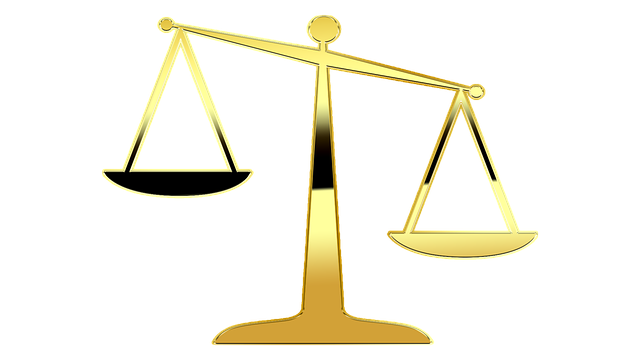Navigating Complex Securities Litigation Regulations is crucial for understanding Environmental Crime Jurisdiction. Environmental crimes involve multinational corporations with intricate structures, demanding specialized legal knowledge and strategic evidence presentation. Uncovering liability requires meticulous investigation into corporate hierarchies. Prosecutors must blend general criminal defense tactics and securities litigation expertise to ensure fairness in complex trials, adapting to evolving laws and case precedents. Successful representation safeguard clients' rights through thorough evidence review, strategic argumentation, and persuasive courtroom presentations.
Environmental crime trials expose and penalize those who flout environmental protection laws, addressing issues from pollution to habitat destruction. As these cases grow in complexity, understanding jurisdiction, unravelling intricate litigant networks, navigating evidence collection challenges within diverse regulatory landscapes, and employing effective courtroom strategies become paramount. This article explores these crucial aspects of navigating complex environmental securities litigation regulations, equipping legal professionals with essential tools for successful prosecution and defence.
- Understanding Environmental Crime Jurisdiction
- Uncovering Complex Litigant Identities
- Navigating Evidence Collection Challenges
- Strategies for Effective Courtroom Representation
Understanding Environmental Crime Jurisdiction

Navigating Complex Securities Litigation Regulations plays a pivotal role in understanding Environmental Crime Jurisdiction. Environmental crimes, often involving corporate entities, are unique in their legal complexities. These cases involve intricate financial transactions, international agreements, and regulatory frameworks that can make them challenging to prosecute and defend. Legal professionals must possess a deep understanding of both environmental laws and securities regulations to effectively navigate these high-stakes cases.
The jurisdiction for environmental crimes varies significantly depending on the nature of the offense and its impact. In many jurisdictions, these cases are heard in specialized courts designed to handle complex financial litigation. Jury trials in such settings demand thorough legal knowledge, persuasive argumentation, and a strategic approach to present evidence effectively. Achieving a complete dismissal of all charges is not uncommon in well-prepared defense strategies, reflecting the intricate nature of navigating these complex securities litigation regulations.
Uncovering Complex Litigant Identities

Uncovering the identities of litigants in environmental crime trials is a complex task, especially when navigating the intricate web of corporate structures. Many cases involve multinational corporations with intricate legal entities, making it challenging to determine who exactly is responsible and liable. This process requires meticulous investigation and an understanding of not just the company’s operations but also its financial and decision-making hierarchies.
Environmental crime investigations often reveal a tangled network of individuals and entities. By scrutinizing corporate and individual clients alike, prosecutors can build a robust case while ensuring that justice is served. An unprecedented track record in these trials shows that careful navigation of complex securities litigation regulations can lead to successful outcomes, holding accountable those who’ve contributed to environmental degradation and avoiding indictment for those with genuine misunderstandings or lesser roles.
Navigating Evidence Collection Challenges

Navigating Complex Securities Litigation Regulations presents unique challenges for Environmental Crime Trials. These cases often involve intricate financial transactions and complex corporate structures, making evidence collection a delicate process. Prosecutors must adhere to strict rules governing the gathering and admissibility of digital records, financial documents, and other potential evidence linked to white-collar and economic crimes.
Successfully navigating these challenges requires a deep understanding not only of general criminal defense strategies but also of specialized regulations designed for securities litigation. Across the country, legal teams must stay abreast of evolving laws and case precedents that dictate how evidence is obtained, preserved, and presented in court, ensuring fairness and integrity throughout the trial process.
Strategies for Effective Courtroom Representation

Navigating Complex Securities Litigation Regulations is a critical aspect of Environmental Crime Trials. Effective courtroom representation demands a deep understanding of the intricate legal framework surrounding environmental crimes. Lawyers must master all stages of the investigative and enforcement process, from initial discovery to final argument, to ensure their clients’ rights are protected. This includes meticulous review of evidence, strategic construction of legal arguments, and persuasive presentation before judges and juries.
Successful representation in these trials also necessitates a comprehensive grasp of regional and national regulations, as environmental laws vary across the country. Each respective business must be held accountable for its actions under the specific laws applicable to their operations. By combining thorough knowledge of the law with robust investigative techniques, legal professionals can navigate these complex cases effectively, ensuring justice is served for environmental transgressions.
Environmental crime trials present unique challenges, from understanding jurisdiction under complex securities litigation regulations to uncovering intricate litigant identities and navigating evidence collection hurdles. Effective courtroom representation in these cases demands a multifaceted approach that integrates strategic planning, robust investigation techniques, and a deep understanding of environmental laws. By mastering these aspects, legal professionals can ensure justice is served and hold perpetrators accountable for their ecological transgressions.






